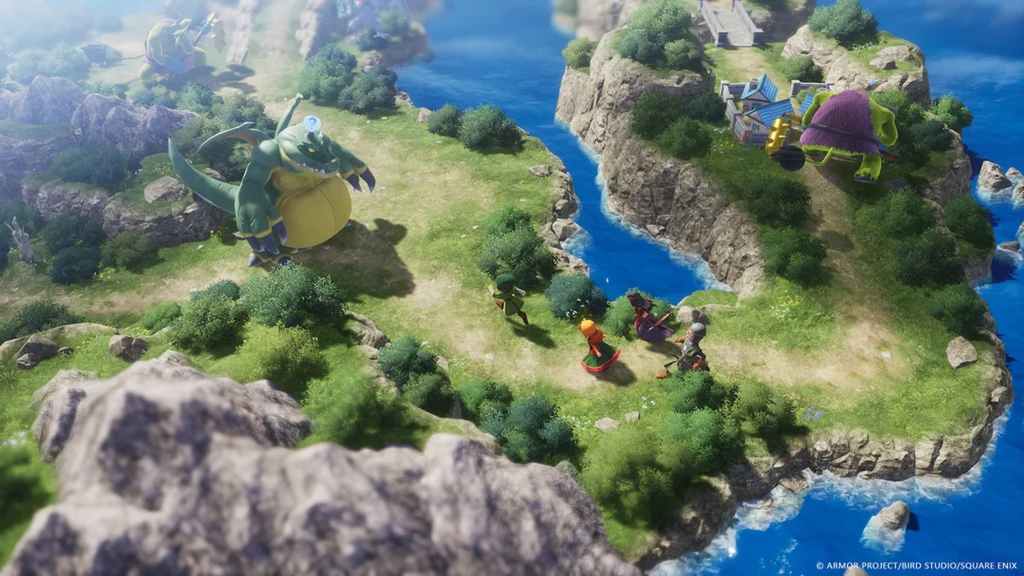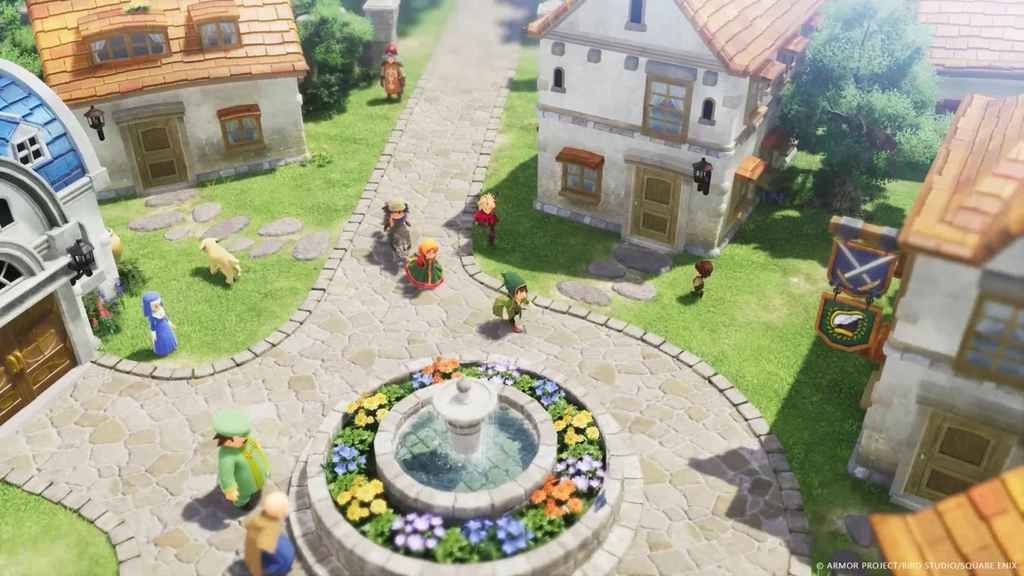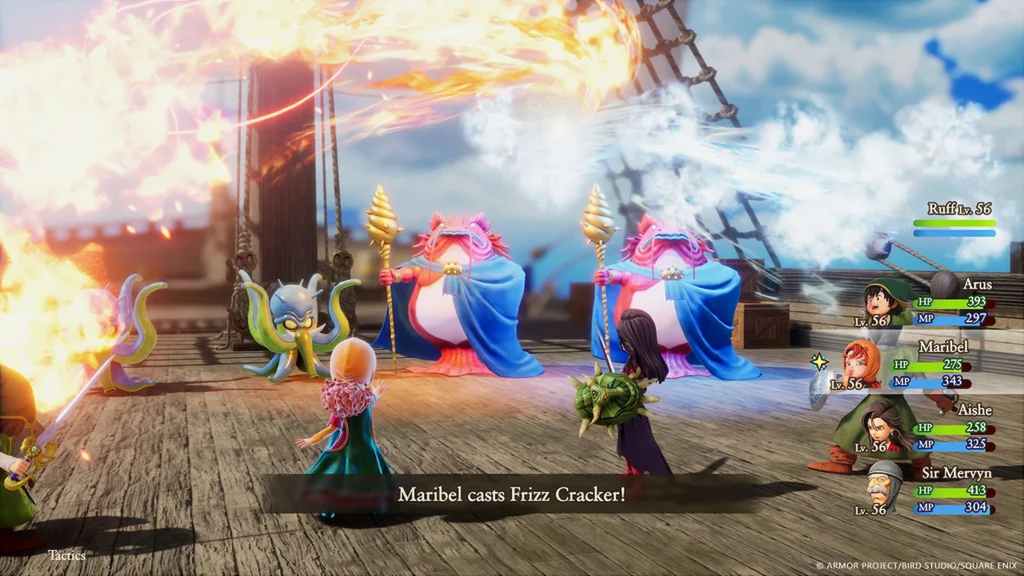One of Square Enix’s most successful series, aside from Final Fantasy, is the Dragon Quest franchise. For nearly four decades, it has stood as a foundation for RPGs, blending adventure, charm, and engaging turn-based gameplay. Other series have reinvented themselves to keep pace with changing trends, but Dragon Quest has always been proud of and adhered to its tradition. This includes Dragon Quest VII, which has often been seen as brilliant and misunderstood. Originally released on the PlayStation in 2000, Square Enix is remaking the game for modern audiences and platforms, giving it a second chance.
Videos by ComicBook.com
Dragon Quest VII Reimagined is the perfect chance to revive the series, after all, it hasn’t seen a new release since Dragon Quest XI: Echoes of an Elusive Age and fans eagerly wait for Dragon Quest XII: The Flames of Fate. For all its quirks, Dragon Quest VII was a game ahead of its time, and a remake could bring its vision to a whole new generation.
3) A World Built on Discovery, Not Direction

The first reason Dragon Quest VII stands out is its structure. Many RPGs immediately thrust players into some world-ending conflict, but Dragon Quest VII opts for a slower approach. Instead, players begin as a simple fisherman’s son on a small island. There are no monsters to fight or a grand quest to follow. The player’s only goal is to explore, question, and piece together the mysteries of the world.
It’s a slow burn, and one of the reasons critics were frustrated with its launch. However, this slow buildup is instrumental in making the game feel rewarding later on. The central hook revolves around traveling through ancient ruins and restoring lost continents. The satisfaction of solving a puzzle and seeing a new land rise from the sea is an exhilarating sense of discovery that few games can replicate.
A core part of Dragon Quest VII’s exploration is the lack of icons and objectives. Rather than relying on directions, players are free to explore through curiosity. This allows for more rewarding discoveries, and this is something Reimagined can enhance. Improving the seamless exploration, more environmental storytelling, and expanded interactions with the cast could make every moment more enjoyable.
Finally, one of the most exciting aspects is the world map rendered with modern visuals. Previous Dragon Quest remakes maintained a 2D aesthetic with HD graphics, but Dragon Quest VII Reimagined opts for a beautiful 3D style. This will make each island feel alive and showcase the charm of the series in full.
2) A Story That Deserves a Modern Audience

While the early hours of Dragon Quest VII are slow, the narrative that unfolds throughout the course of the game is one of the richest in the franchise. It doesn’t follow a single linear plot, but rather a series of interconnected paths across numerous islands. Each contains a story with powerful emotion and depth. One may explore the consequences of a plague, while another has a village that has been cursed for generations. Uncovering each of these leads to individual stories that support the overall plot.
What makes these quests and islands stand out is their reflection of human nature. They constantly blur the line between good and evil, questioning how civilizations rise and fall, how faith can heal and corrupt, and how compassion can change the course of history. Dragon Quest VII offers a mature and introspective experience, one that isn’t expected behind the series’ charm and colorful aesthetic.
The Reimagined version can bring these many stories to life like the original couldn’t. Modern voice acting, better facial animation, and cinematic framing can bring emotional weight to each vignette. Moreover, the episodic nature, which was seen as a limitation on release, can now be a strength. Square Enix can better connect each story and make the transitions feel natural. This would make each self-contained adventure fit into a larger tapestry full of narrative arcs.
But most of all, Dragon Quest VII Reimagined gives the game a chance to reach a wider audience. Its incredible length, over a hundred hours, and slow start alienated Western audiences. Square Enix can improve the pacing, but even without this change, longer narratives are a better fit for today’s gaming industry.
1) A Chance to Bridge the Old and the New

Lastly, Dragon Quest VII Reimagined could be the franchise’s most important because it offers an opportunity to bridge the old fans and newcomers. Dragon Quest XI: Echoes of an Elusive Age is one of the most popular in the series, and many other fans started with Dragon Quest VIII and Dragon Quest IX. The appetite for more games in the series is still strong, and this remake can prove that the older games are worth checking.
The original game’s class system was one of the most robust in the series, thanks to its experimentation and long-term character development. Refining this system in a modern version with new options like hybrid classes or more meaningful visual customizations could go a long way. A smoother interpretation of the classic turn-based battle system with faster engagement, along with other quality-of-life features, would make the game’s length feel like less of a chore.
Beyond mechanics, visuals, and other features added to and expanded on with Reimagined, Square Enix could introduce the game to a new generation. The studio has already proved it is willing to revive past games with remakes and remasters like Final Fantasy Tactics. Previous Dragon Quest games have seen remakes, but this is the largest and most ambitious to date. With Dragon Quest VII: Reimagined, Square is honoring the series’ legacy while pushing forward.
At its heart, Dragon Quest VII was always about time. Both the passing and reclaiming of it. It asked players to be patient and allow themselves to invest in a story that revealed itself slowly, but meaningfully. This patience proved to be its greatest strength and biggest obstacle. Today’s gaming world is better suited to this approach, leaving Dragon Quest VII Reimagined to be Square Enix’s next big game.
What do you think? Leave a comment below and join the conversation now in the ComicBook Forum!









